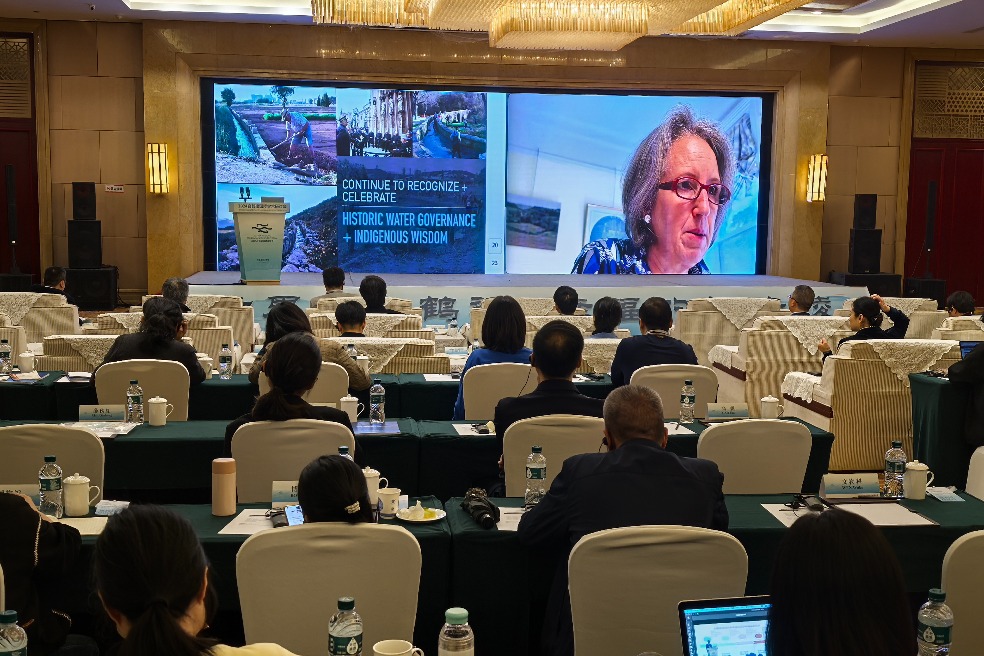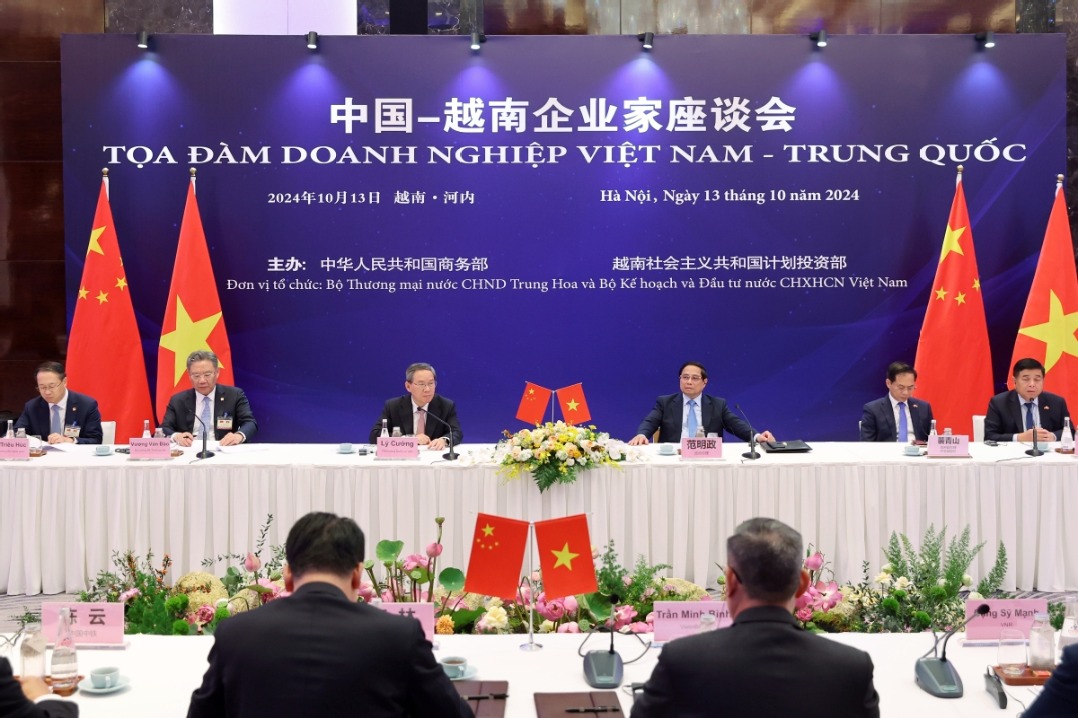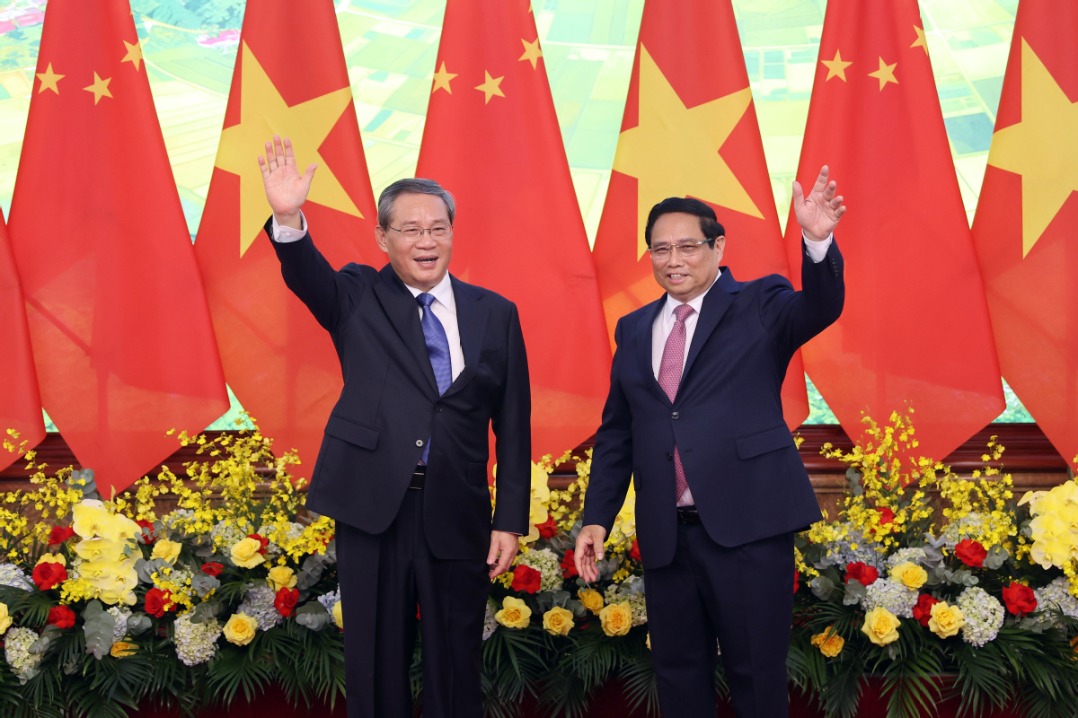China-US climate talks 'encouraging'
Both countries promise bold action on main sources of emissions

The results of climate discussions between China and the United States in Washington are "encouraging", with the climate commitments made by both nations holding global significance, experts said.
Their pledges resonate with the resounding call from the international community to limit the Earth's temperature rise to 1.5 C, as the threat from the global climate crisis looms larger, they said.
Their remarks followed a meeting on Wednesday and Thursday of the two countries' working group on enhancing climate action in the 2020s, which was co-led by China's Special Envoy for Climate Change Liu Zhenmin and John Podesta, the man tipped to become the US' senior adviser to the president for international climate policy.
The White House announced plans to tap Podesta to be the top diplomat representing the US in global climate talks in late January, replacing John Kerry. But it seems that the appointment of the new climate envoy has not officially been made.
Wang Yi, vice-chairman of China's National Expert Panel on Climate Change, said the meeting marked the first held offline between China's newly appointed climate envoy and his soon-to-be US counterpart.
Their talks are a signal of the "sustained momentum of the cooperation between China and the US", he said.
Liu, a former vice-minister of foreign affairs, was announced as Xie Zhenhua's successor as climate envoy on Jan 12.
The in-depth discussions between China and the US were reminiscent of the San Francisco summit between the presidents of the two countries in November last year, and focused on areas identified in the Sunnylands Statement, according to a news release issued by China's Ministry of Ecology and Environment on Saturday.
The statement was released after Xie met Kerry in Sunnylands, California, from Nov 4 to 7 last year.
Recalling the US' plans to achieve 100 percent clean power by 2035, and China's intent to lower coal consumption during the 15th Five Year Plan period (2021-25) and make efforts to accelerate that work, including by accelerating the deployment of renewables, the release said the two countries aim to intensify technical and policy exchanges to realize their respective goals.
It said the nations plan to co-host a second Methane and Non-CO2 Greenhouse Gases Summit at the COP29 United Nations climate change conference in November this year in Baku, Azerbaijan.
Methane is a much more potent heat-trapping gas than carbon dioxide. The first summit was held at COP28 in Dubai, the United Arab Emirates, late last year.
The release said the two countries are committed to promoting bilateral cooperation and conducting capacity building on deploying abatement technologies, as well as developing and/or improving measurement, reporting and verification systems and standards to achieve significant methane emissions control and reductions this decade.
China and the US will also engage in technical cooperation and capacity building for measurement and abatement solutions for other non-CO2 greenhouse gases, including industrial nitrous oxide as well as tropospheric ozone precursors, it added.
Recognizing the importance of developing the circular economy and resource efficiency in addressing the climate crisis, they expect to conduct further technical exchanges on the circular economy, including food loss and waste reduction, textiles and recycling standards, it said.
Both sides look forward to the US-China High-Level Event on Subnational Climate Action, which will be held on May 29 and 30 in Berkeley, California, it said.
Manish Bapna, president and CEO of the Natural Resources Defense Council, welcomed the positive results from the meeting.
"This cooperative signal is encouraging news," he said. "The stakes for all of us could not be higher, and committing to doing the hard work to meet ambitious deadlines is essential."
Both countries are promising bold action on all of their main sources of emissions in their future climate plans, Bapna said. That is what is needed to stay within the 1.5 C tipping point, and it stands to truly benefit the world, he added.
The landmark Paris Agreement aims to keep the global temperature rise this century well below 2 C above pre-industrial levels and to pursue efforts to limit the temperature increase even further to 1.5 C.
But there has been an increasingly strengthened consensus around the globe to meet the 1.5 C goal.
- Beijing's payment facilitation services benefit international visitors
- Overseas graduates target computer, internet, telecommunications and electronics sectors
- Recruitment for 39,700 civil service jobs to start soon
- Chinese mainland punishes die-hard 'Taiwan independence' separatists advocating violence
- Xi highlights rarity of Yuan Dynasty porcelain
- Carrier strike group joins ongoing PLA exercise near Taiwan




































